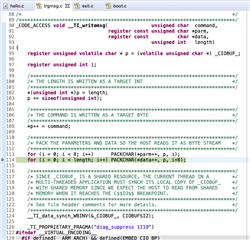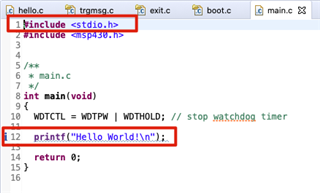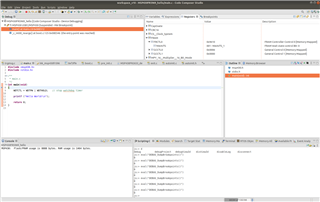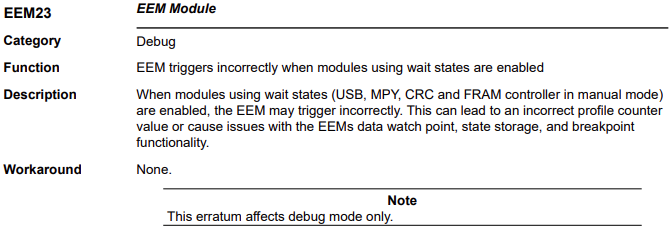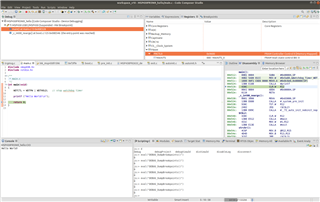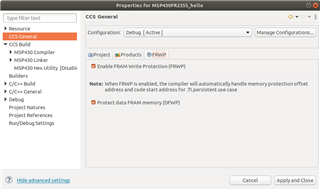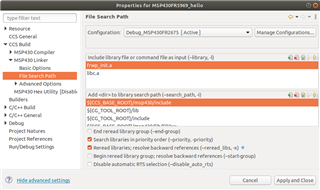Other Parts Discussed in Thread: MSP-FET, MSP-TS430PT48A, MSP430FR2633, CAPTIVATE-PGMR, CAPTIVATE-FR2633, , MSP430FR5969, MSP430FR2355
I'm using CCS 10.3. I changed the --print_support option to nofloat, and my project builds without any errors or warnings. However, I'm not seeing any output from my printf statements in the CCS console. Breakpoint functionality in CCS is poor at best (i.e. some breakpoints don't get hit, even with no optimizations; breakpoint counters never halt execution), so I really need to get this console output working, so that I can get some idea as to what my application is doing.
Please describe in detail how to get/view console output from printf statements. I'm using MSP-FET and MSP-TS430PT48A.
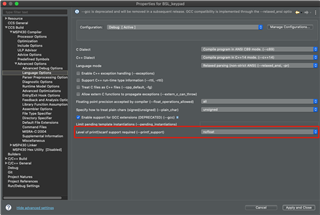
If you're going to only point me to a document, please at least point me to the correct section. I need a single answer that resolves this, not something that go on for weeks on end without resolution, like my other ticket here.



